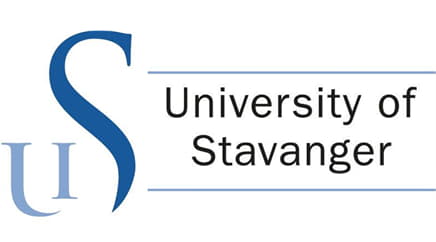Last Date: 4th March 2024.
Job description
The University of Stavanger invites applicants for a PhD Fellowship in Environmental Biotechnology at the Faculty of Science and Technology, Department of Chemistry, Bioscience and Environmental Engineering.
The position is vacant from 01.08.2024 and the starting date is no later than 01.11.2024.
This is a trainee position that will give promising researchers an opportunity for academic development through a PhD education leading to a doctoral degree.
The hired candidate will be admitted to the PhD program in Science and Technology. The education includes relevant courses amounting to about six months of study, a dissertation based on independent research, participation in national and international research environments, relevant academic communication, a trial lecture and public defence. Read more about the PhD education at UiS on our website.
The appointment is for three years with research duties exclusively.
Research topic
The PhD Fellow will be affiliated with the following project “The Effect of Temperature on Antibiotic Degradation and Spread of Antibiotic Resistance Genes”.
As resistance continues to surge worldwide, the threat of antimicrobial resistance (AMR) poseses a growing risk to global health. Forecasts suggest that antibiotic resistant bacteria (ARB) will emerge as a primary contributor to mortality, accompanied by substantial economic setbacks, particularly in low and low-middle income nations (WHO, 2014).
According to the new EU regulations antibiotics and the presence of resistance genes in the effluent are gaining priority and there will be a need for their removal in the future. There are now indications that the temperature of wastewater treatment may play an important role in the spreading of antibiotic resistance. For example, Germany and Norway use different amounts of antibiotics especial regarding their usage in farming but despite the difference in usage they have similar resistance profiles. Contrary to these, countries with high temperature in the wastewater treatment plants (WWTPs) typically have higher rates of antibiotic resistance.
However, antibiotics are often found to be present in WWTPs and if not removed during treatment, they may be released into the surrounding environments via effluent release. Treatment temperatures drastically change the microbial profiles of degradation and lower treatment temperatures may affect the degradation of the antibiotics found in the WWTPs.
In this study we would like to determine the impact of temperature on degradation and resistance profile. For this reactors will be established and run at different temperatures and we will look at changes in resistance and degradation rates in our reactor systems. We would also like to study the profile of selected antibiotics and the resistance genes in the WWTPs, and we will look at the impact of treatment temperatures on selected antibiotics and the resistance genes present in the treatment plants. To determine the impact on degradation and resistance profile, reactors will be established and run at different temperatures.
This project will involve reactor operation, wet analyses, molecular and microbiological analyses (incl. MIC, q-PCR and sequence analysis), respirometric analysis and process modeling.
Qualification requirements
We are looking for applicants with a strong academic background who have completed a five-year master degree (3+2) within environmental engineering, biotechnology, biochemistry, molecular biology, preferably acquired recently; or who possess corresponding qualifications that could provide a basis for successfully completing a doctorate.
To be eligible for admission to the doctoral programmes at the University of Stavanger both the grade for your master’s thesis and the weighted average grade of your master’s degree must individually be equivalent to or better than a B grade. If you finish your education (masters degree) in the spring of 2024, you are also welcome to apply.
Applicants with an education from an institution with a different grade scale than A-F, and/or with other types of credits than sp/ECTS, must attach a confirmed conversion scale that shows how the grades can be compared with the Norwegian A-F scale and a Diploma Supplement or similar that explains the scope of the subjects that are included in the education. You can use these conversion scales to calculate your points for admission.
Furthermore, it is expected that you:
- have a strong motivation for scientific research and desire to contribute to UiS’s research community
- are resilient, and take responsibility for ensuring that tasks are of high quality and completed on time
- are open to feedback and actively find new opportunities for personal and professional development
- are genuine, solution-oriented and proactive
- maintain composure and focus even in the face of challenging situations
- are supportive, establish trusting relationships and adapt to others as necessary
Emphasis is also placed on your:
- evidence in knowledge in the areas of environmental engineering, micro- and molecular biology and environmental biotechnology
- wet and dry laboratory experience (esp. reactor operation, micro- and molecular biological methods, bioprocess modeling)
- ability to work independently and in a team, be innovative and creative
- ability to work structured and handle a heavy workload
- having a good command of both oral and written English






